22 October 2020 – 2:30 – 4:00 PM (CEST) | 7:30 – 9:00 AM (COT) | 8:30 – 10:00 PM (CST)
https://who.zoom.us/webinar/register/WN_vLQfDS-oRVGBG6s2fo_DsQ
The most effective indicator for a city’s sustainable development is the health and wellbeing of its citizens. Being citizens, local leaders, researchers, funders or practitioners, we can all contribute to create urban environments that enable vibrant community life, preserve natural urban ecosystems, foster economic development, and protect the most vulnerable, ultimately improving health and, in particular promote health equity. While each city is unique, a well-prepared health sector is key to address urbanization in a way that meets the health challenges faced by citizens in the 21st century, and it is also a drive to ensuring that people are at the centre of the urban transformation.
The main goal of this webinar is to highlight and discuss the role of the health sector in taking decisions and influencing interventions to catalysing action towards healthy and sustainable cities. Focus will be given on the “how-to” both sectors can work together, “bridging the gap from both sides” strengths capacities to (1) foster and sustain intersectoral work, from planning, design to implementation of policies; (2) localize action and engage citizens, communities; (3) track and monitor success; and (4) maximize health, environmental and climate gains, through leadership and guidance. The session will also explore solutions, networks and opportunities already in place to scale up action globally and ensure all urban environments are reached.
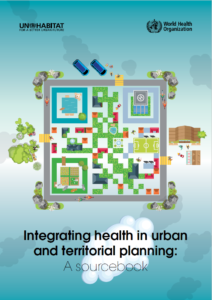
The keynote presentation will set the scene for the discussion, providing an overview of the global challenge to deliver health through the transformation of urban environments and the contribution of the health sector to that challenge. The initial presentations will also be an opportunity to share some of WHO and UN-Habitat response for supporting cities and countries on urban health-related issues. The panel discussion will convene a diverse group of experts and practitioners involved in city action to share their experiences with addressing urban health and urban development. Key messages, gaps and opportunities arising from the discussion will be used to inform the global agenda on how to conceive healthy and liveable urban environments by integrating health into urban planning and design. Finally, the event will also promote the most recent outcome of the longstanding collaboration between WHO and UN Habitat, the publication Integrating health in urban and territorial planning: sourcebook for urban leaders, health and planning professionals.
PEOPLE-ORIENTED URBANIZATION – PLANNING AND PUBLIC HEALTH WORKING TOGETHER TO GENERATE HEALTHY URBAN ENVIRONMENTS
22 October 2020 – 2:30 – 4:00 PM (CEST) | 7:30 – 9:00 AM (COT) | 8:30 – 10:00 PM (CST)
| OPENING REMARKS | |
| AKSEL JACOBSEN – State Secretary of International Development – Norway | |
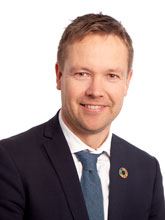 |
Jakobsen is State Secretary of International Development for the Norwegian Ministry of Foreign Affairs. Prior to taking up his current post, he worked as an advisor to GAVI, the Vaccine Alliance, and he has previously acted as senior policy advisor to the Christian Democratic Party’s Parliamentary group and as political advisor to the former Minister of Health and the Minister of Labour. He serves as member of the Board of the Norwegian think tank “Skaperkraft”, which aims to stimulate reflection and engagement around societal challenges. Jakobsen has a law degree from the University of Tromsø. |
| KEYNOTE SPEAKERS | |||
| NATHALIE ROEBBEL – Coordinator Public Health and Environment – WHO Geneva | |||
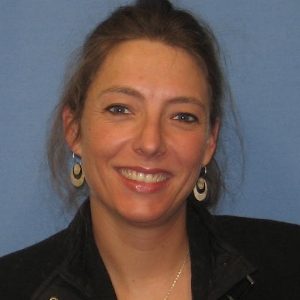 |
Nathalie Röbbel is the Unit Head for WHO’s work on Air Quality and Health at the WHO. Prior to this she was a technical officer in the Department of Public Health, Environmental, and Social Determinants of Health at WHO in Geneva leading the department’s work on housing and health. One of her main areas of work was the development of WHO Housing and Health Guidelines and WHO’s efforts to address slum upgrading through housing policies and other social policies and interventions. Before joining WHO HQ, she worked as a technical officer at the WHO Regional Office for Europe, in Bonn and Copenhagen, where she was responsible for environmental health performance reviews and involved in several housing and health related projects. Ms Röbbel holds a Ph.D. from the Rheinische-Friedrich-Wilhelms University in Bonn, Germany. | ||
|
EDUARDO MORENO – Head of Knowledge and Innovation – UN-Habitat |
|||
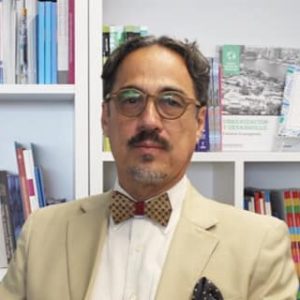 |
Eduardo Moreno is Head of Knowledge and Innovation at UN-Habitat headquarters in Nairobi, Kenya, and Director Interim for Mexico and Cuba country office.
Prior, he was the Chief of the Global Urban Observatory from (2002-2008) and Senior Technical Adviser in the Bureau of Africa and the Arab States, UN-Habitat (1999- 2002). He has over 35 years of academic and professional experience in housing and urban development policies, policy evaluation, institutional analysis, global monitoring, and equity and urban poverty issues. His qualifications include a Ph.D. in urban geography and a master’s degree in urban sociology from the University of Paris III-Sorbonne. |
||
|
CHAIR |
|||
| JOSE SIRI – Senior Science Lead for Cities, Urbanization and Health – WellcomeTrust | |||
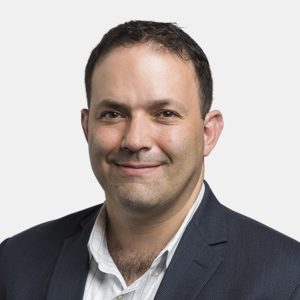 |
José Siri is the Senior Science Lead for Cities, Urbanization and Health for the Wellcome Trust’s Our Planet Our Health Programme, helping to manage the programme’s portfolio of urban research and build strategic engagement to advance the field of planetary health. Over his career in research and policy, José has worked to develop and apply systems approaches to urban health, focusing on leveraging science for healthy development, developing simple systems tools to catalyze better decision-making, and improving understanding of complex challenges. | ||
| PANELISTS | |
| JO IVEY BOUFORD – Former president of International Society of Urban Health – ISUH | |
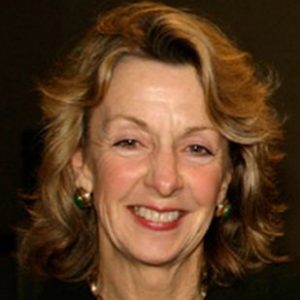 |
Jo Ivey Boufford, M.D., is Clinical Professor of Global Health at the New York University School of Global Public Health and Clinical Professor of Pediatrics at New York University School of Medicine. She is President Emeritus of The New York Academy of Medicine and Immediate Past President of the International Society for Urban Health (2017-9). She served as Dean of the Robert F. Wagner Graduate School of Public Service at New York University from June 1997 to November 2002. Prior to that, she served as Principal Deputy Assistant Secretary for Health in the U.S. Department of Health and Human Services (HHS) from November 1993 to January 1997, and as Acting Assistant Secretary from January 1997 to May 1997. While at HHS, she was the U.S. representative on the Executive Board of the World Health Organization (WHO) from 1994–1997. She served in a variety of senior positions in and as President of the New York City Health and Hospitals Corporation (HHC), the largest municipal system in the United States, from December 1985 until October 1989. In NYC, she currently serves on the Board of the United Hospital Fund, is Vice Chair of the NYS Public Health and Health Planning Council (PHHPC) and Chair of its Public Health Committee. Nationally, she is on the Boards of the National Hispanic Health Foundation and the Health Effects Institute. She was elected to membership in the US National Academy of Medicine (formerly IOM) in 1992, served on its Board on Global Health, and served two four year terms as its Foreign Secretary from 2003 to 2011, She was elected to membership of the National Academy of Public Administration in 2015. She is a Fellow of the New York Academy of Medicine. Dr. Boufford attended Wellesley College for two years and received her BA (Psychology) magna cum laude from the University of Michigan, and her MD, with distinction, from the University of Michigan Medical School. She is Board Certified in pediatrics. |
|
CARLOS CADENA GAITAN – Secretary of Mobility – Medellin, Colombia |
|
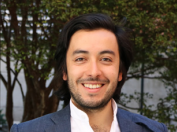 |
Dr. Cadena-Gaitán is currently serving as Transport Secretary for the City of Medellín. Carlos obtained his Ph.D. at the University of Maastricht in 2014, and since then has been an affiliated researcher at the United Nations University Maastricht Economic and Social Research Institute on Innovation and Technology (UNU-MERIT). He was the director of the 4th World Bike Forum, which gathered 7000 people in Medellín. Due to that role and other art and urban activism initiatives, he was granted the 2015 “Future Sustainability Leader” Prize by the Danish Think-Tank Sustainia, and was nominated to the “Inspired Leadership Award” by The Performance Theatre in London.
Previously Carlos worked as Academic Coordinator at the Centre for Urban and Environmental Studies –Urbam– at EAFIT University, where he coordinated the Masters in Urban and Environmental Processes and internal research projects, his main research interests include urban transport, air quality, urban governance, and education for sustainable development. |
|
JENS AERTS – Senior Urban Planner – International Society of City and Regional Planners -ISOCARP |
|
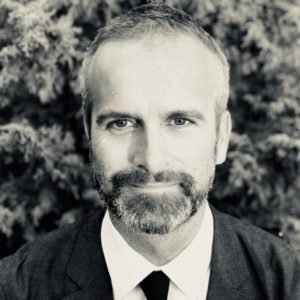 |
Jens Aerts is a senior urban planner and engineer with 20 years of experience working with local governments, non-for- profit organizations and international development organizations such as UNICEF, the World Bank and UN-Habitat. He is an associate partner of BUUR- Bureau for Urbanism in Belgium.
|
|
VIRINDER SHARMA – Senior Urban Development Specialist – Asian Development Bank – ADB – Manila, Philippines |
|
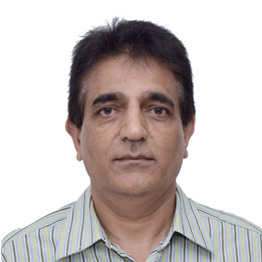 |
Program Manager of the multi-donor $150m Urban Climate Change Resilience Trust Fund (UCCRTF) supported by UK Govt. FCDO, Swiss SECO and The Rockefeller Foundation. As a development specialist he has more than 20 years of experience in designing, planning, and implementing programs on Urban development, Climate Change, Health and Rural livelihoods.
|
TO REGISTER CLICK HERE
https://who.zoom.us/webinar/register/WN_vLQfDS-oRVGBG6s2fo_DsQ